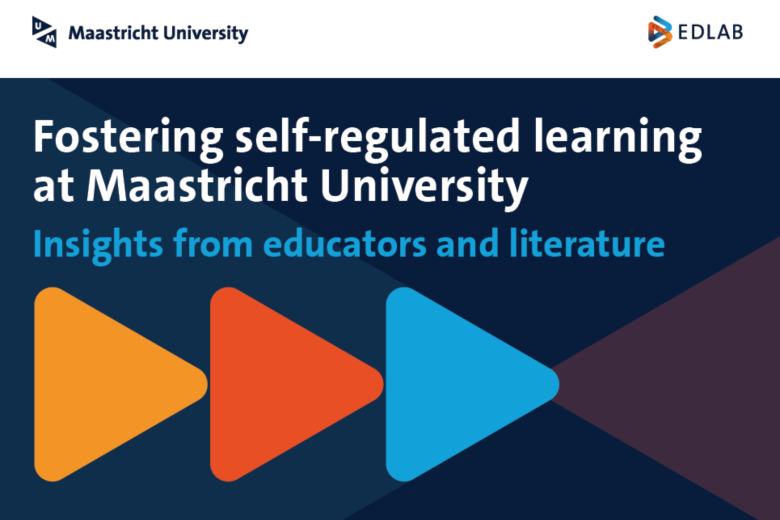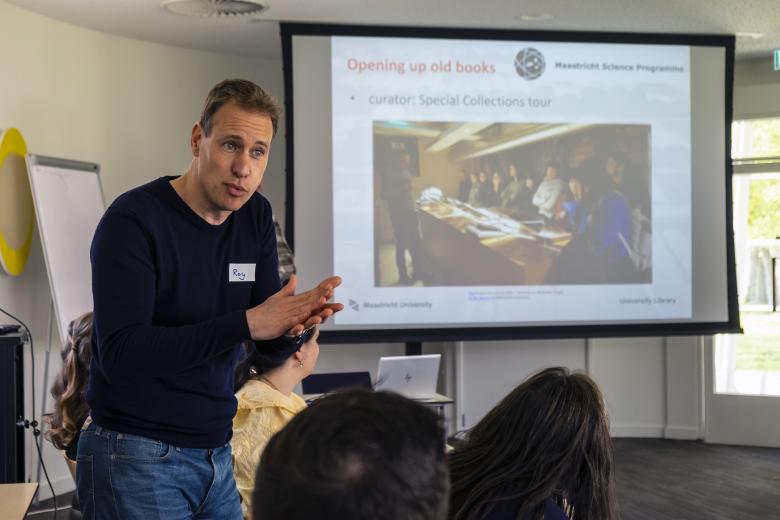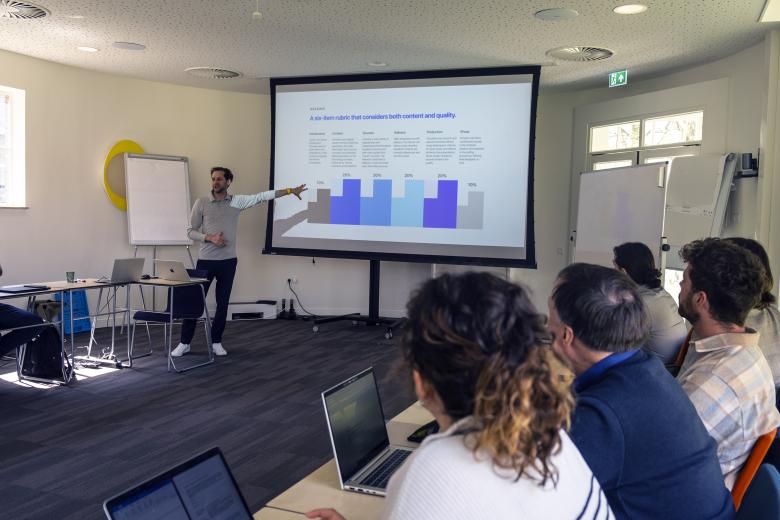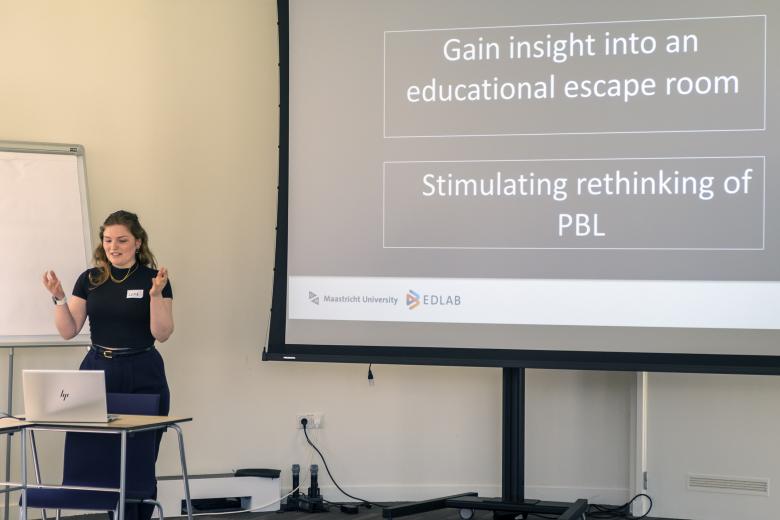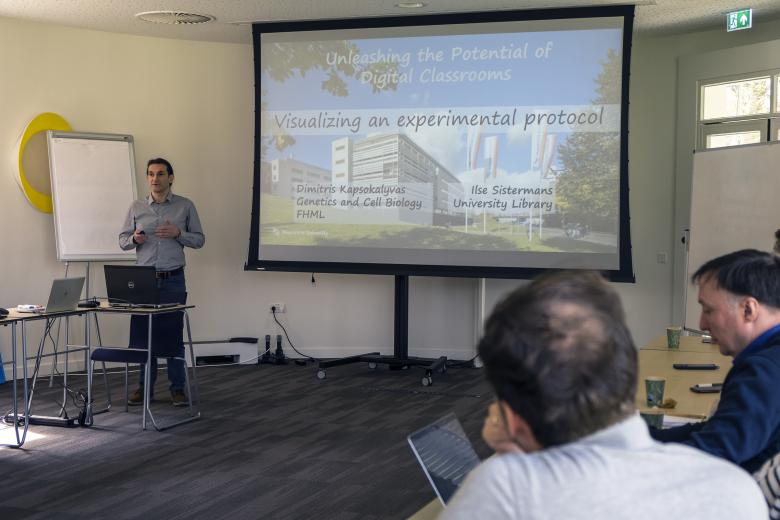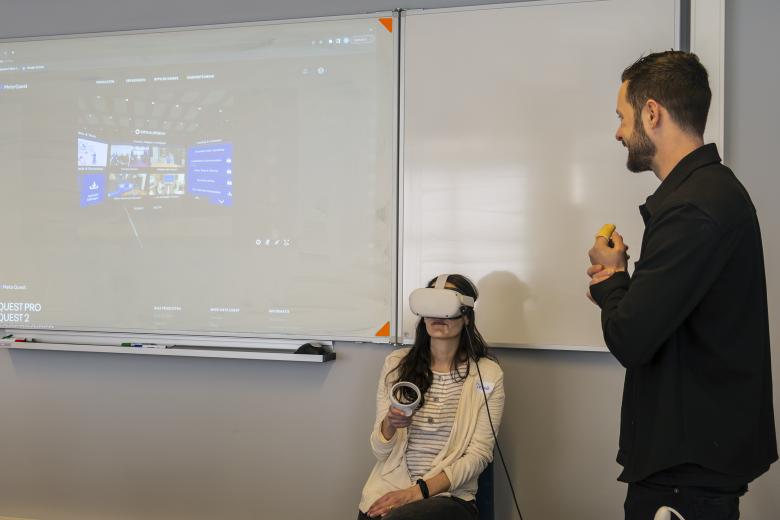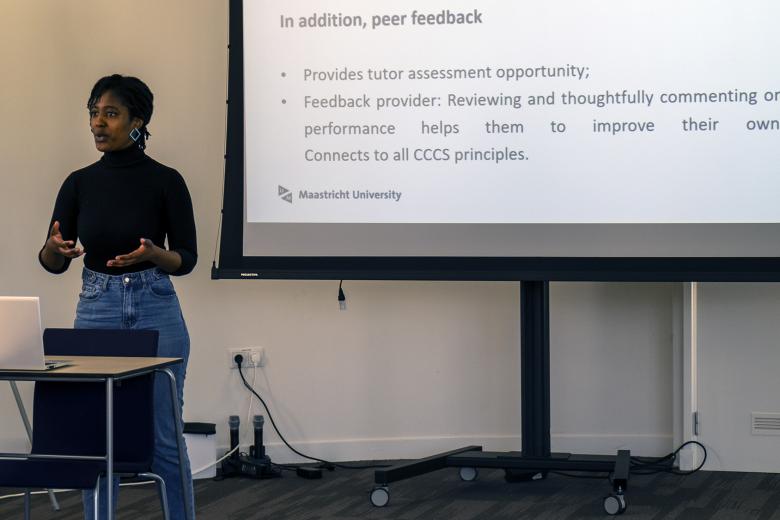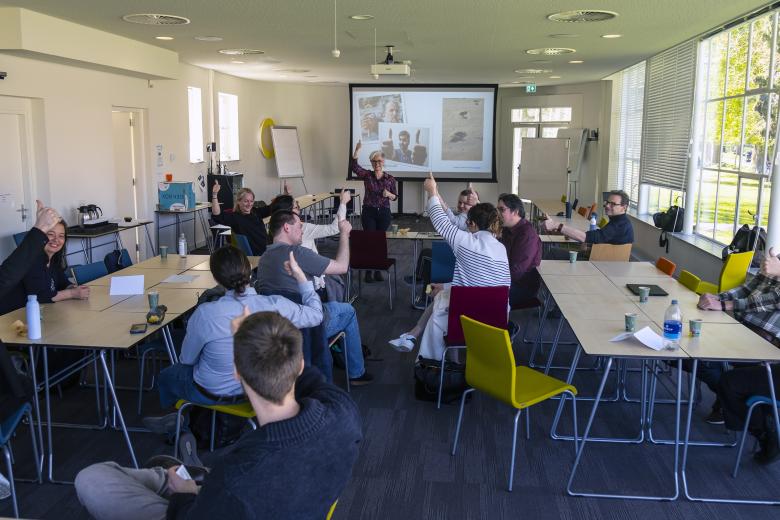How technology is changing higher education at Maastricht University
Nowadays, we can’t even imagine our lives without smartphones, tablets and computers. Technology has become ingrained in our daily routine, and it’s no surprise that it’s also made its way into higher education. Gone are the days when students simply submitted papers and handwrote tests.
A recent event at EDLAB showcased the creative ways that teachers at Maastricht University (UM) leverage digital technologies in their educational practice.
Research and presentation skills
Did you know that the UM library possesses a unique collection of books that are over a century old? Seems like an odd place to start when talking about technology but reading primary sources can be just as critical as reading about them. These old books remind us how what might seem true at a time and age may prove false and how our understanding of concepts has evolved.
And what about secondary sources? It’s no secret that academia has a bit of a love-hate relationship with Wikipedia. But Odin Essers, Roy Erkens and Melissa Prinz reveal in their Wikipedia Education Programme that the collaborative online encyclopedia can be very useful in research if used aptly.
If a picture is worth a thousand words, what more is a video? Dimitris Kapsokalyvas has asked students to demonstrate a skill or a step-by-step process via video. Ilse Sistermans explained the positive educational benefits of video assignments, such as improved teamwork and enhanced digital and presentation skills.
Alternatively, if you need a break from all the screen time, Jermain Kaminski has just the thing – podcasts. Thankfully, the University Library boasts a DIY podcast and video studio, so staff and students don’t have to worry about accessing the necessary equipment.
The digital classroom
Lena Gromotka explained how she helped create and implement a digital escape room in the second-year Critical Thinking course at the Faculty of Psychology in her student time.
Noah Moonen then took attendees on a journey where Virtual Reality enters education, whether to offer real-time feedback on presentation skills, improve customer support through Augmented Reality, and help students connect through the telepresence of service robots. These scenarios may sound like far-off dreams, but thanks to DEXLab, they’re already a reality at Maastricht University.
And ultimately, Matthias Gögelein, Iveta Dzivite, and I offered a glimpse into our Canvas workshop, which aims to help teachers get the most out of UM's digital education platform.
It was fascinating to see how purpose drives technology forward. As we look ahead, it will be exciting to see what new challenges and opportunities emerge in the classroom and how technology will help us tackle them. The participants gave a huge thumbs-up to the event!
By Munshya Mupela, EDLAB Student Assistant
Also read
-
Study Smart gets Dutch Education Premium
Maastricht University's (UM) interfaculty educational innovation project Study Smart is one of the three winners of the Dutch Education Premium 2025. This was announced on Tuesday during the Comenius festival in The Hague.

-
Three UM initiatives win Global Citizenship for Sustainable Development grants
We are proud to announce that three projects have received funding from the Global Citizenship for Sustainable Development network at Maastricht University.
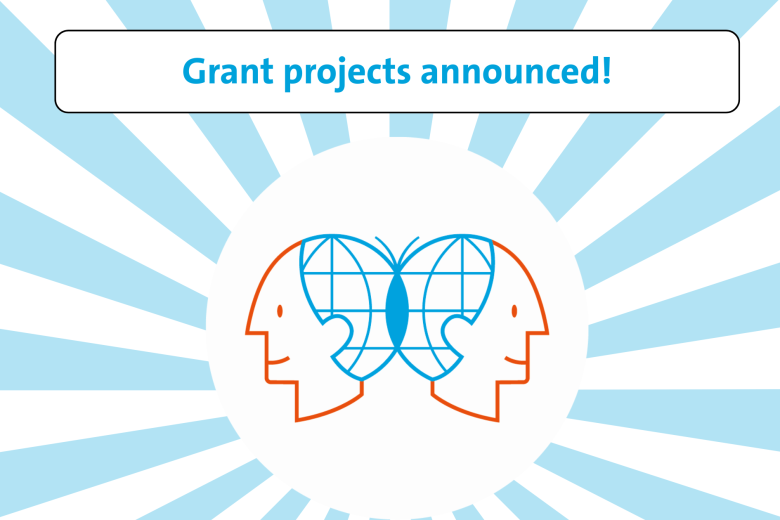
-
Research report: Fostering self-regulated learning at Maastricht University – Insights from educators and literature
Drawing on academic literature, good practices, and the experiences of UM teaching staff, this handbook outlines what SRL is, how it connects to our CCCS educational model, and how it can be applied in day-to-day teaching. It includes concrete examples, tools, and reflections from colleagues across...
